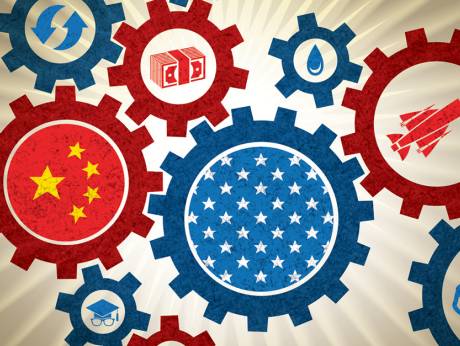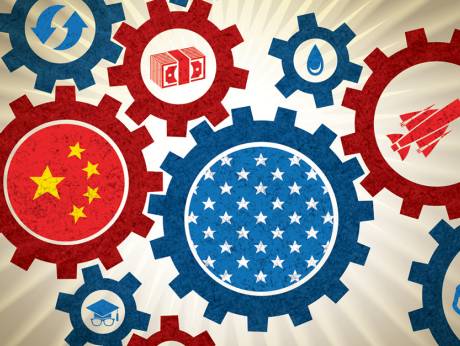- Both Washington and Beijing realise how much is at stake and how much they have to gain from a successful, stable relationship
Gulf News
Qi Lin

The Chinese grab for fossil fuels or its military competition for naval control is not a challenge, but rather a boost for the United States’ Asia-Pacific posture. Calibrating the contraction of its overseas projection and commitments — some would call it managing the decline of an empire — the US does not fail to note that nowadays half of the world’s merchant tonnage passes though the South China Sea. Therefore, Washington will exploit any regional territorial dispute and other frictions to its own security benefit, including the cost-sharing of its military presence with local partners, as to maintain its pivotal position on the maritime edge of Asia that arches from the Arabian Gulf to the Indian Ocean, Malacca, the South and East China Seas and up to northwest–central Pacific. ‘Is China currently acting as a de facto fund-raiser for the US?’— professor Anis H. Bajrektarevic famously asked in his policy paper ‘What China wants for Asia: 1975 or 1908?’.
Contextualising the challenge, there is room for a fresh take on the issue.
The US pivot to the Asia-Pacific under the administration of US President Barack Obama has concentrated on reinforcing traditional alliances, redeploying naval forces and creating multilateral cooperation mechanisms, such as the Trans-Pacific Partnership (TPP). Unfortunately, mounting suspicions have undermined the Sino-US relationship and stability and prosperity in the Asia-Pacific.
Washington needs to take a larger, more constructive approach. It needs not only to engage China but use US leverage to influence China to act in a parallel fashion with America. US interests in the Asia-Pacific rely on regional stability and require a compatible China. The focus of US policy towards China needs to become a win-win relationship.
In September 2016, Obama and Chinese President Xi Jinping agreed to work together to constructively manage differences and decided to expand and deepen cooperation. This path is promising:
n Greater trust: When the US emphasises engaging China in multilateral frameworks where it leads, both will be less sceptical about each other’s ambition. Therefore, the inclusion of China in TPP becomes important and the establishment of new security structure with China to share the US defence responsibilities becomes essential. The invitation for Chinese Navy to participate in the Rim of the Pacific Exercise later this year is a likely step forward in this direction.
In Pragmatic values: Beijing’s political challenges push Chinese leaders to put their priority on domestic growth and stability. Accommodating US policy preferences enables China to retain stability with a restless populace. Better Sino-US ties will help take the pressure off US Navy’s budget and even provide America with an opportunity to reinforce its strength to deal with security challenges, such as nuclear nonproliferation in North Korea.
n A more manageable regional security order: Statements by Obama in support of a One-China policy and a resolution between maritime claimants reassure China that the US will not act as a regional trouble-maker. The statement by Xi that China is not interested in pursuing hegemony is an assurance that Beijing will not be sabotaging the current security order. A wider strategic dialogue will improve the Pentagon’s ability to assess China’s military capabilities. Risks of miscalculation will be reduced.
America’s allies and China’s neighbours may feel less secure when Beijing and Washington get along. Yet, their confidence will rebound as both countries develop a shared understanding of responsibilities and create more development opportunities. All will eventually become stakeholders in better US-China bilateral relations.
The US and China should make every effort to move forward to a beneficial partnership. Neither party wants confrontation and conflict. Both realise how much is at stake and how much they have to gain from a successful, stable relationship. China’s future membership in TPP, dialogue and cooperation between the Pentagon and China’s military and a pragmatic approach towards managing regional differences point the way to a better future. Both the US and China want and deserve an Asia-Pacific region that is prosperous and secure.



